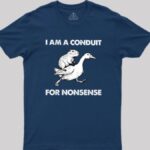As parents and caregivers, witnessing the early stages of a child’s development is a remarkable journey. Toddlers, typically aged one to three years, undergo significant growth during this period, mastering essential skills that lay the foundation for their future. While each child develops at their own pace, focusing on key skills can help guide their growth and ensure they are well-prepared for the challenges ahead. Here are some essential skills every toddler should master.
1. Motor Skills
Developing both fine and gross motor skills is crucial for toddlers as they explore their environment and gain confidence.
- Gross Motor Skills: These involve larger movements that use big muscle groups, like running, jumping, and climbing. Activities such as playing in the park, dancing, or throwing a ball can help toddlers strengthen their gross motor skills. Encouraging outdoor play provides ample opportunities for toddlers to practice these movements.
- Fine Motor Skills: These involve smaller movements, like grasping, stacking blocks, and using utensils. Toddlers can enhance their fine motor skills through activities like drawing, coloring, and playing with puzzles. Simple tasks like pouring water or sorting objects can also improve their dexterity and hand-eye coordination.
2. Language Skills
Language development is another critical area for toddlers. During this stage, they start to understand and use words, which enhances their ability to communicate their needs and feelings.
- Vocabulary Expansion: Encourage language skills by reading to your toddler regularly. Picture books, nursery rhymes, and interactive stories can help expand their vocabulary and comprehension. Engage in conversations, ask open-ended questions, and encourage them to express their thoughts.
- Social Communication: Encourage your toddler to interact with peers and adults. Playdates and group activities provide opportunities for them to practice taking turns, sharing, and engaging in simple conversations, fostering their social communication skills.
3. Emotional Skills
Emotional development is essential for toddlers as they begin to understand their feelings and the feelings of others.
- Identifying Emotions: Help your toddler recognize different emotions by naming them in everyday situations. Use facial expressions and stories to illustrate how feelings like happiness, sadness, and anger manifest. This will aid in building their emotional vocabulary and awareness.
- Empathy and Sharing: Encourage empathy by teaching your toddler to recognize when someone else is upset or in need of help. Role-playing different scenarios and discussing feelings can reinforce these skills. Activities that promote sharing, such as group play with toys, can also foster emotional intelligence.
4. Self-Care Skills
As toddlers grow, developing self-care skills becomes increasingly important. Encouraging independence in daily routines helps build confidence and self-esteem.
- Personal Hygiene: Teach your toddler basic hygiene habits, such as washing their hands, brushing their teeth, and using tissues. Make these activities fun by singing songs or using colorful soaps and toothbrushes.
- Dressing and Undressing: Encourage your toddler to participate in dressing themselves. Start with easy-to-manage clothing items like elastic waistbands and large buttons. This promotes independence and fine motor skill development while helping them learn about personal responsibility.
5. Problem-Solving Skills
Fostering problem-solving skills in toddlers sets the stage for critical thinking and independence.
- Encourage Exploration: Provide age-appropriate toys and activities that challenge your toddler to think critically. Building blocks, simple puzzles, and shape sorters encourage them to experiment, fail, and succeed. Allowing them to explore different solutions to a problem fosters resilience and creativity.
- Guided Challenges: Offer guidance without taking over. For instance, if they struggle with a puzzle, ask questions like, “What do you think happens if you try this piece here?” This helps them develop problem-solving strategies while fostering their confidence.
6. Social Skills
Social skills are fundamental for toddlers as they interact with peers and adults.
- Sharing and Turn-Taking: Teach your toddler the importance of sharing and taking turns during playtime. Games that require waiting for a turn, like board games or simple group activities, can help reinforce these skills.
- Following Directions: Simple commands help toddlers learn to listen and follow directions. Start with one-step directions like “Please pick up the ball” and gradually increase complexity as they master each level.
In Conclusion
Developing essential skills during the toddler years is crucial for lifelong learning and growth, especially in a nurturing setting like preschool in Taylorsville. Caregivers play a vital role in fostering an environment that promotes exploration, independence, and social interaction. It’s important to celebrate every little achievement, from their first steps to their ability to articulate feelings.
By nurturing these skills, you’re laying a strong foundation for your toddler’s future success and helping them navigate the world with confidence and curiosity. Keep in mind that each child is unique, so be patient and supportive as they embark on their journey of discovery.










